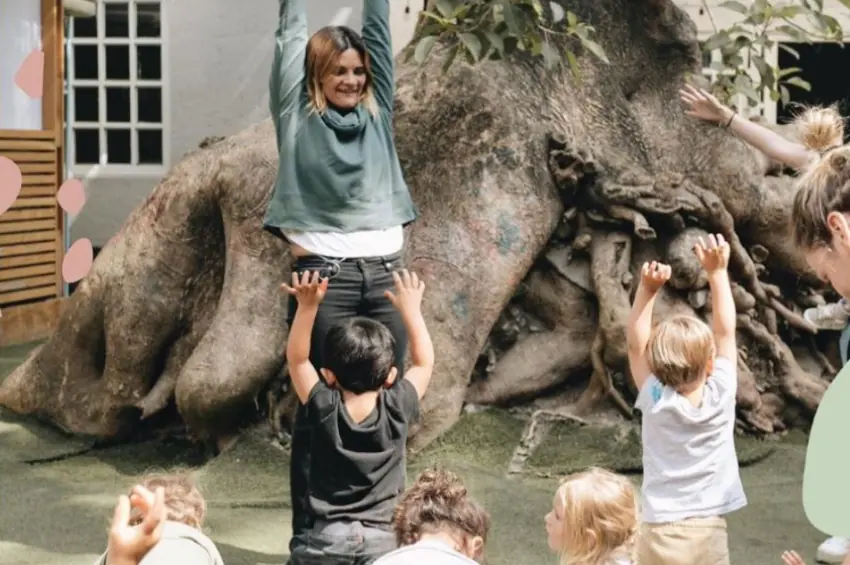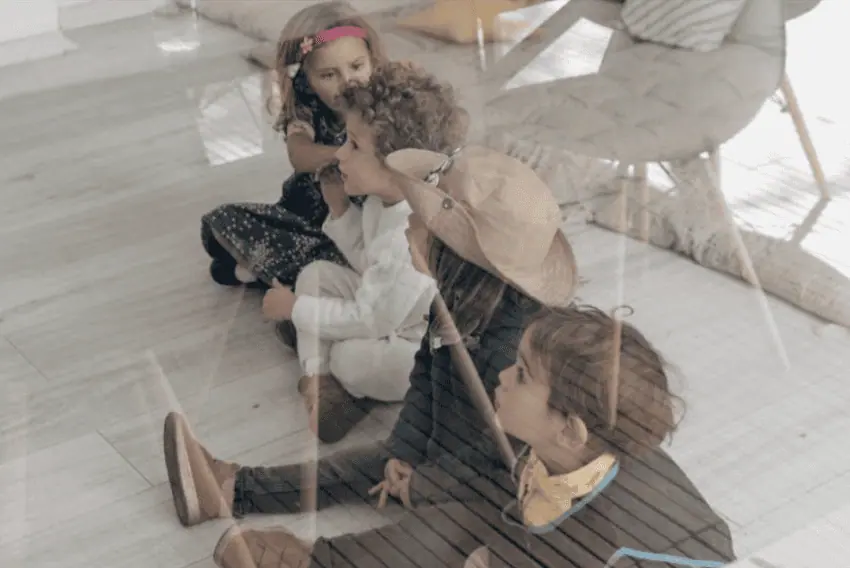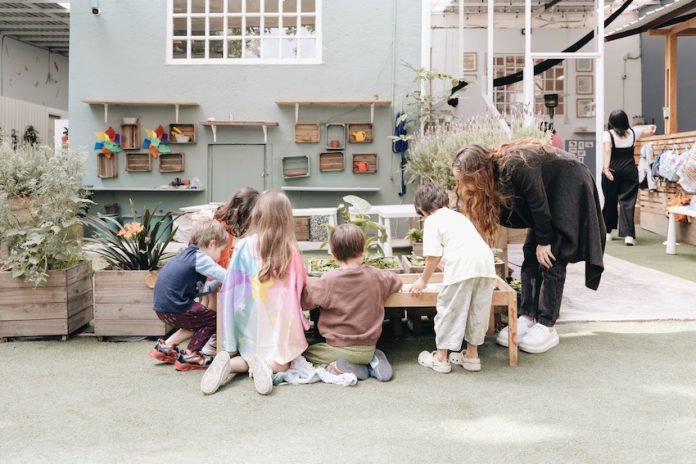Adding a smidge of British whimsy and play to the warm spirit of Mexico, U.K. international schools for children in their early years are becoming increasingly sought after by parents across the country. The British Early Years Foundational System (EYFS), in particular, is drawing attention for its play-based approach that stands in stark contrast to more traditional, academically-focused kindergarten systems found around Mexico.
Rather than emphasizing highly structured learning at desks, the British EYFS curriculum allows young children to develop through hands-on experiences, exploration, and self-directed play. These practices are aimed at cultivating social skills, EQ, creativity, and an innate love of learning from an early age.

Ombu’s British-Mexican learning space is the collaborative effort of three mothers: Mexican Elisa Palacios (Eli), and Brits Rosie Roper and Sophie Matthews. What began as a small “bubble” of children cared for by Eli during COVID-19 rapidly expanded, prompting her to seek out a larger space. Eli’s mother, who lives in a highrise building overlooking Ombu’s current location, was able to see into an open lot available for rent across the street. She suggested Eli look into the space, noting the potential of its vast courtyard. Within a year, Ombu had moved in. Rosie, an early education instructor who had taught English to Elisa’s “bubble” of students, was quickly asked to join the operation. Later on, Rosie met fellow fellow Brit (and educator) Sophie and convinced her to come on as a partner.
The backgrounds of the three women seamlessly blend to provide children with a holistic foundation for body, mind, and spirit. Eli brings spiritual healing expertise rooted in meditation and yoga, while Rosie and Sophie, highly trained early childhood educators, draw from years of experience in prestigious international schools.
There are a number of major British schools offering EYFS education in Mexico City, from big names such as The Edron Academy (who have produced names like Jennifer Clement and DBC Pierre, where Rosie first got her start in Mexico), Greengates (now operated by international education giants Nord Anglia) and Winpenny. However, the small scale of things at Ombu makes the school feel much more personal, and allows every member of the team to play an important role in nurturing the children in their care.
Walking through the blue door of Ombu Kinder feels akin to entering a magical foreign land not unlike a scene from Lord of the Rings; a dignified Ombu tree rises from the center of the courtyard dressed with ropes for climbing. Scattered around are several inflatable pools, some filled with plastic balls and others with a shallow layer of water, explaining the bathing suits worn by many of the children running about. In a nearby classroom, the sound of a tambourine is audible over the chatter and laughter of children. Pulga, a fluffy black dog trots leisurely around the premises observing the proceedings, and I’ve been informed that a neighboring rooster drops in to occasionally check out the scene.
Various adventure stations dot the premises, including a “mud kitchen”, a giant sandbox filled with toys, a jumbo trampoline, a treehouse, and a swing set. Upon navigating from one side of the courtyard to the other, one must take great care not to be run over by gangs of tiny adventurers pedaling furiously on plastic bikes, trucks, and other miniature vehicles. Flanking the open space is a series of airy, pod-like classrooms, each with its distinct theme, from a cosmos-inspired room featuring a human-sized rocket ship and glittering planets suspended from the ceiling to a tranquil shala-like space adorned with colorful pastel cushions.

Ombu caters to children aged 0-5 years, drawing a diverse array of nationalities, among them Mexican, Danish, Russian, German, French, and American. The center’s British EYFS methodology combines elements of Montessori and Waldorf practices with its research-based approach. Each cohort, named after the elements (nieve, cielo, agua, tierra, and fuego), is assigned age-appropriate developmental outcomes customized according to the interests of each child. “It’s about observing the children, seeing what they like, what their needs are, and incorporating that into the curriculum. So it’s very much a personalized curriculum,” explains Rosie.
The primary objectives for children include three foundational factors: social, emotional, and physical. These are followed by areas with an academic focus, such as Maths and English. But the main priority is ensuring that kids have a baseline of well-being, happiness, safety, and security. From that state, learning happens best. Sophie speaks of her own disappointing experiences looking for a school for her young child. “They were very focused on children sitting, and on silence,” she says. “I didn’t see much interaction or guidance from the teachers. It was more about behavioral management. And for children in their early years, in my professional opinion, that’s not what’s meant to happen. They’re meant to be having a bit of freedom, and walking and developing language and social skills.” She goes on to cite how important it is that Ombu allows for an environment of “organized chaos,” filled with various games and sensory stimulation, where kids can practice independence, inter-relational skills, and self-awareness.
For children with special needs, Ombu offers extra support with dedicated shadow personnel. The school also has on staff a school psychologist, speech therapist, sensory therapist, and an occupational therapist. School helpers or “guias” are vetted with a preference for those with a background in psychology, over one in teaching. To further the aim of healthy play-based early development, the center is in the process of building a sensory stimulation room, complete with soft surfaces, a slide, and a ball pit.
Ombu radiates Mexican warmth and spirit, married with British whimsy and ingenuity. It is a testament to the benefits of intercultural learning, allowing kids to be well-adjusted global citizens. “We built a center that I wish I would have had as a child,” Sophie remarks, and I have to agree. My time immersed in the school’s enchanting environment has left me thoroughly inspired and energized. And quite frankly, I wouldn’t mind spending more time there even now at my age, lost in imaginative play, learning, and multi-cultural social camaraderie.
Monica Belot is a writer, researcher, strategist and adjunct professor at Parsons School of Design in New York City, where she teaches in the Strategic Design & Management Program. Splitting her time between NYC and Mexico City, where she resides with her naughty silver labrador puppy Atlas, Monica writes about topics spanning everything from the human experience to travel and design research. Follow her varied scribbles on Medium at https://medium.com/@monicabelot.
